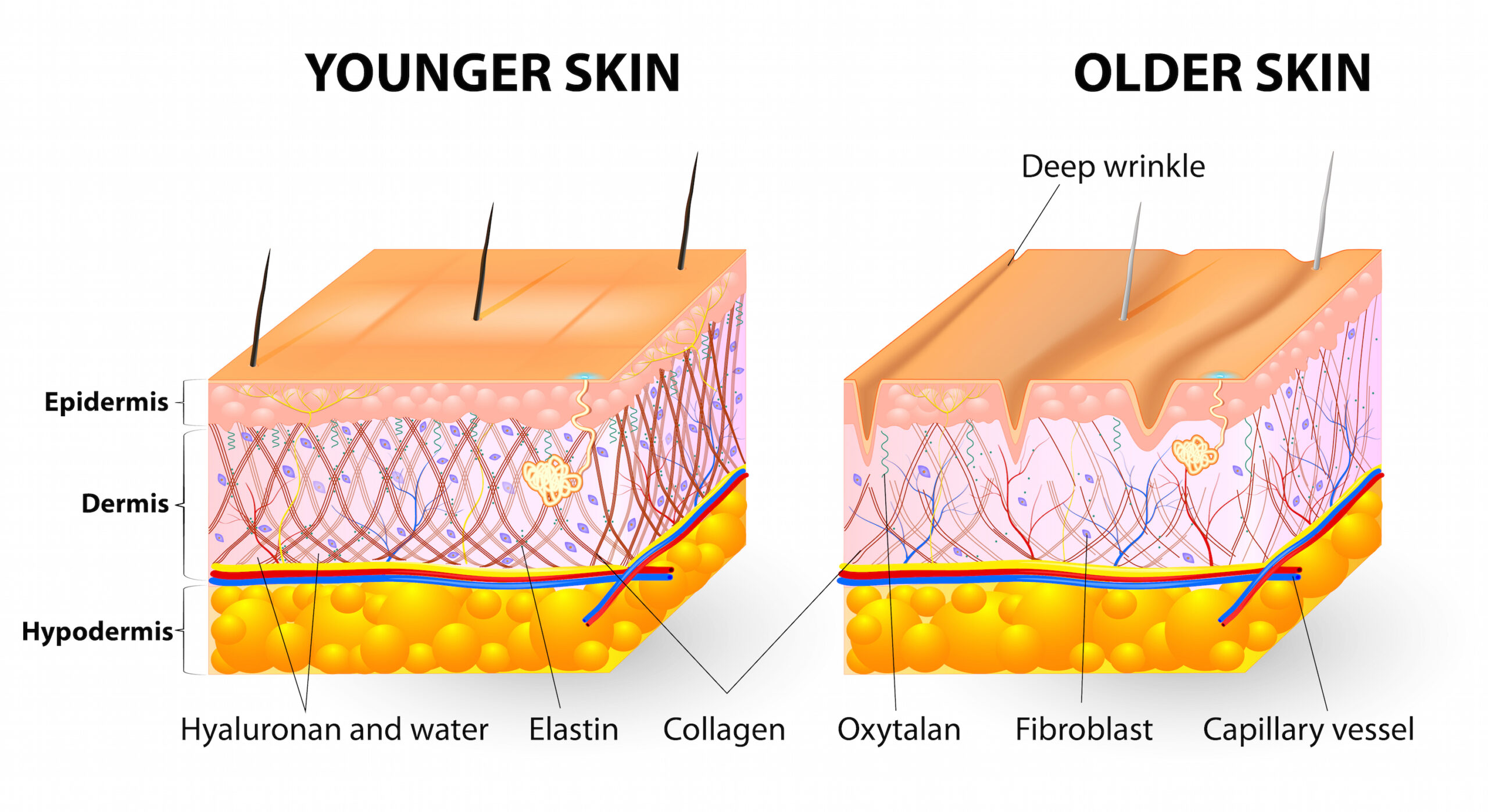Collagen supplements have become the poster child of modern beauty and wellness routines, often marketed as the secret to youthful skin, stronger nails, and healthy hair. But a new meta-analysis challenges the science behind the hype, revealing a wrinkle in the narrative that many supplement brands don’t talk about.
While collagen is a vital structural protein in the human body, new research questions whether supplementing with collagen actually delivers measurable benefits—or whether perceived improvements could be linked to study bias or industry funding.
Let’s break down what the science really says and whether your collagen pills are worth the price.

What Is Collagen, and Why Do We Need It?
Collagen is the most abundant protein in the human body, supporting the structure of skin, tendons, ligaments, bones, and connective tissue. It works alongside other compounds like elastin and hyaluronic acid to support skin elasticity, hydration, and firmness.
Collagen Production Declines With Age
The body naturally produces collagen using amino acids from foods like fish, chicken, red meat, and eggs. However, production slows over time due to factors like:
-
Aging
-
Excessive sun exposure
-
Smoking
-
Alcohol consumption
-
Poor diet
This decline in collagen levels often leads to sagging skin, fine lines, joint stiffness, and thinning hair—which is why supplementing with collagen has become such a mainstream trend.
The New Meta-Analysis: What It Found
A new meta-analysis published in The American Journal of Medicine analyzed 23 randomized controlled trials involving 1,474 participants. Researchers were initially optimistic, with aggregated data showing measurable improvements in:
-
Skin elasticity
-
Hydration
-
Wrinkle depth
But when the data was narrowed down to high-quality studies—particularly those not funded by supplement companies or pharmaceutical firms—the benefits largely disappeared.
“There is currently no clinical evidence to support the use of collagen supplements to prevent or treat skin aging,” the study authors concluded.
The Influence of Industry Funding and Study Quality
Many commercial supplements studied were part of research funded by the companies that make them. In low-quality trials, results were often skewed, showing improvements not matched by independent or higher-quality studies.
This adds to growing skepticism in the wellness space, where sponsored research and marketing campaigns can sometimes blur the line between scientific validation and persuasive branding.
What Experts Say About Collagen Supplements
In a related finding, a 2023 Harvard Health article by dermatologists Dr. Payal Patel and Dr. Maryanne Makredes Senna reviewed 19 clinical studies and found that some participants experienced improved skin texture and hydration. However, most supplements weren’t pure collagen—they contained a mix of other ingredients:
-
Hyaluronic acid
-
Coenzyme Q10
-
Chondroitin sulfate
-
Antioxidants
-
Vitamins and minerals
“It’s unclear if benefits were due to collagen or other additives,” the researchers noted.
“No human studies have proven that collagen taken orally is deposited directly into the skin, nails, or hair.”
Are Some Forms of Collagen Better Than Others?
Some studies suggest peptides like prolyl-hydroxyproline and hydroxyprolyl-glycine may help improve moisture, firmness, and fine lines, but the evidence is still limited. Experts emphasize the need for larger, longer-term, higher-quality studies before making definitive health claims.
Should You Use Collagen Supplements?
Despite the buzz, the current scientific consensus suggests that collagen isn’t a miracle cure. If you do choose to take it, be cautious:
-
Look for high-quality products with transparent ingredient sourcing
-
Avoid blends that obscure how much actual collagen is included
-
Be skeptical of bold marketing claims not backed by peer-reviewed studies
Healthy Alternatives to Support Natural Collagen Levels
Instead of focusing on supplements, experts recommend maintaining collagen levels naturally through:
-
A protein-rich whole food diet (fish, chicken, beans, eggs)
-
Plenty of antioxidants from fruits and vegetables
-
Sunscreen and UV protection
-
Staying hydrated
-
No smoking or excessive alcohol
These habits help support your body’s natural ability to produce and protect collagen, without relying on questionable powders, drinks, or tablets.
Final Takeaway: Science Over Hype
Collagen might still play a role in health and skin aging—but its supplement form lacks strong independent backing, especially when stripped of company-sponsored trials.
Until further research is available, a healthy diet, sun protection, and smart skincare may do more for your skin than any capsule ever could.